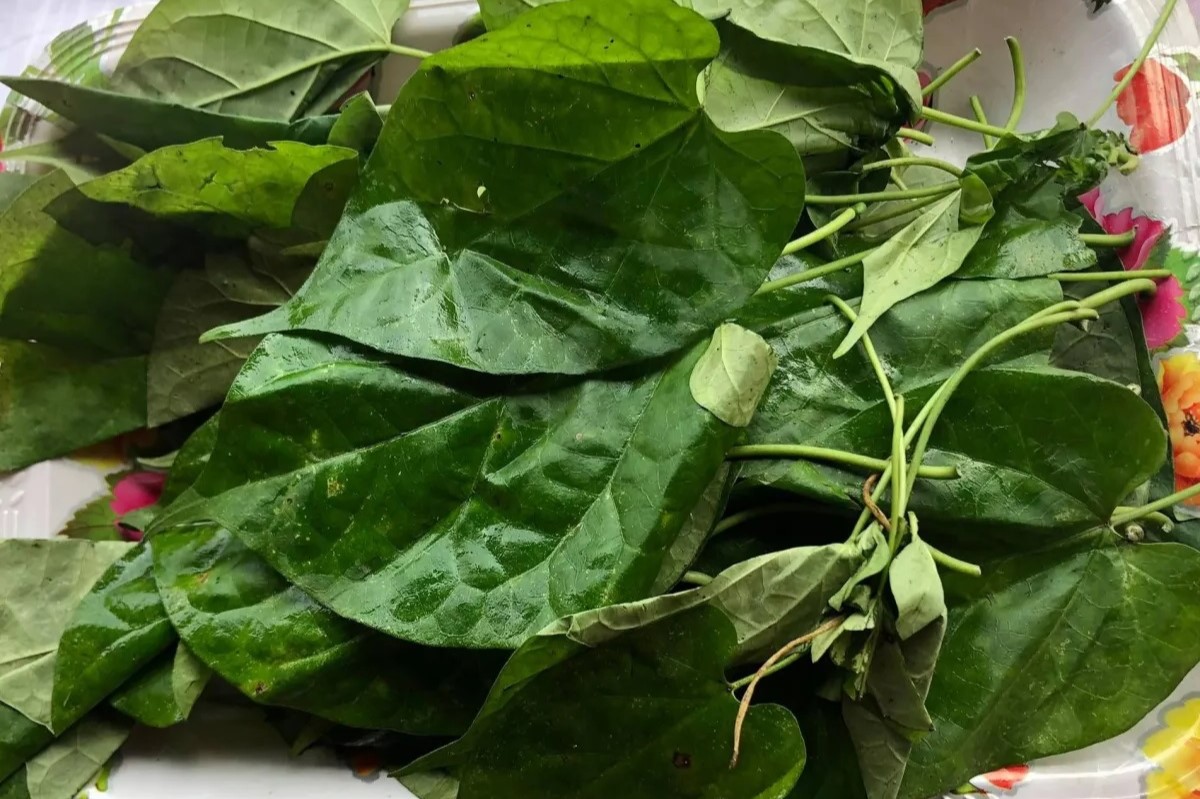
Utazi leaves, also known as Gongronema latifolium, are a staple in West African cuisine and traditional medicine. These heart-shaped leaves pack a punch with their bitter taste and numerous health benefits. But what makes Utazi leaves so special? For starters, they are rich in antioxidants, which help fight free radicals in the body. They also contain essential vitamins and minerals like vitamin C, calcium, and iron. Used in soups, stews, and herbal remedies, Utazi leaves have been cherished for generations. Whether you're a foodie looking to spice up your dishes or someone interested in natural health remedies, learning about Utazi leaves can be both exciting and beneficial. Let's dive into 15 fascinating facts about these incredible leaves!
Key Takeaways:
- Utazi leaves are a nutrient powerhouse, packed with vitamins A and C, iron, and antioxidants. They offer health benefits like aiding digestion, lowering blood sugar, and supporting heart health.
- In addition to their medicinal properties, Utazi leaves are a culinary delight, adding a unique flavor to soups, stews, and sauces. They are also easy to grow and harvest, making them accessible to many households.
What Are Utazi Leaves?
Utazi leaves, also known as Gongronema latifolium, are popular in West African cuisine. These leaves are not only flavorful but also packed with health benefits. Let's dive into some fascinating facts about Utazi leaves.
Nutritional Value of Utazi Leaves
Utazi leaves are a powerhouse of nutrients. They are rich in vitamins and minerals that contribute to overall health.
- High in Vitamin A: Utazi leaves contain a significant amount of Vitamin A, which is essential for good vision, immune function, and skin health.
- Rich in Vitamin C: These leaves are also a great source of Vitamin C, which helps in the repair of tissues and boosts the immune system.
- Contains Iron: Iron in Utazi leaves aids in the production of hemoglobin, which is crucial for transporting oxygen in the blood.
- Packed with Antioxidants: The leaves are loaded with antioxidants that help fight free radicals, reducing the risk of chronic diseases.
Health Benefits of Utazi Leaves
Beyond their nutritional value, Utazi leaves offer several health benefits that make them a staple in traditional medicine.
- Aids Digestion: Utazi leaves are known to improve digestion and relieve constipation due to their high fiber content.
- Lowers Blood Sugar: Studies suggest that these leaves can help regulate blood sugar levels, making them beneficial for diabetics.
- Reduces Inflammation: The anti-inflammatory properties of Utazi leaves can help reduce swelling and pain in the body.
- Supports Heart Health: Consuming Utazi leaves may lower cholesterol levels, thus promoting heart health.
Culinary Uses of Utazi Leaves
Utazi leaves are not just medicinal; they are also a culinary delight. They add a unique flavor to various dishes.
- Used in Soups: In many West African countries, Utazi leaves are added to soups for their bitter taste and health benefits.
- Flavor Enhancer: The leaves are often used as a seasoning in stews and sauces to enhance flavor.
- Eaten Fresh: Some people prefer to eat Utazi leaves fresh in salads or as a garnish.
Traditional Uses of Utazi Leaves
In traditional medicine, Utazi leaves have been used for centuries to treat various ailments.
- Treats Malaria: Traditional healers use Utazi leaves to treat malaria due to their antimalarial properties.
- Relieves Cough: The leaves are often used to make herbal teas that help soothe coughs and sore throats.
- Boosts Fertility: Some believe that Utazi leaves can enhance fertility in both men and women.
Growing and Harvesting Utazi Leaves
Growing Utazi leaves is relatively easy, making them accessible to many households.
Utazi Leaves: Nature's Hidden Gem
Utazi leaves pack a punch with their medicinal properties and culinary versatility. These heart-shaped leaves, native to West Africa, are rich in antioxidants and anti-inflammatory compounds. They help in digestive health, blood sugar regulation, and even weight management.
In the kitchen, utazi leaves add a bitter yet aromatic flavor to soups, stews, and sauces. They’re often used in traditional dishes like Nsala soup and pepper soup.
Beyond the kitchen and medicine cabinet, utazi leaves hold cultural significance in many African communities. They’re used in rituals and traditional ceremonies, symbolizing healing and protection.
So, next time you come across these leaves, remember their multifaceted benefits. Whether for health, flavor, or tradition, utazi leaves are truly a hidden gem worth exploring.
Frequently Asked Questions
Was this page helpful?
Our commitment to delivering trustworthy and engaging content is at the heart of what we do. Each fact on our site is contributed by real users like you, bringing a wealth of diverse insights and information. To ensure the highest standards of accuracy and reliability, our dedicated editors meticulously review each submission. This process guarantees that the facts we share are not only fascinating but also credible. Trust in our commitment to quality and authenticity as you explore and learn with us.


